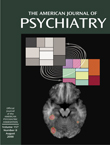Antipsychotics During Pregnancy
Although data regarding conventional antipsychotics and pregnancy are available (1), reports about the course of pregnancy in women treated with atypical agents are sparse. A literature search revealed case reports and letters to the editor on the use of clozapine during pregnancy (2–4). Olanzapine use during pregnancy has also been reported; however, the woman in question chose to abort the fetus (5). We know of no published reports of women conceiving who were treated with risperidone or quetiapine. To our knowledge, this is the first case report of olanzapine used throughout pregnancy.
Ms. A was a 40-year-old obese woman (gravida I, para 0) with intermittent hypertension, a family history of diabetes, and a 24-year history of schizophrenia. She had had more than 30 psychiatric hospitalizations and two suicide attempts. Previous pharmacological treatment included nine oral conventional antipsychotics, fluphenazine decanoate, haloperidol decanoate, and risperidone. She had never taken clozapine. After receiving a full explanation and giving her written informed consent, she enrolled in an open-label olanzapine trial and was stabilized with 20 mg/day of olanzapine. Over the next 12 months her psychopathology significantly improved, and she began to work part-time while attending adult education classes. She experienced normal menstruation and used condoms for birth control. Ms. A had been in a stable marital relationship for the past 5 years, and she and her husband wanted to have a child. They received counseling regarding the risks versus benefits of antipsychotic therapy during pregnancy.
Fifteen months after beginning treatment with olanzapine, Ms. A became pregnant and withdrew from the trial. The decision was made to maintain olanzapine therapy throughout the pregnancy as the risk to the mother and fetus from her schizophrenia were felt to exceed the risk of drug treatment. After 1 month Ms. A’s olanzapine dose was decreased to 15 mg/day because of excessive sedation, and that dose was maintained throughout her pregnancy. She gained 36 lb in the first trimester, with a total of 79 lb gained by delivery. Gestation was complicated by the development of pregnancy-related hypertension at 24 weeks and gestational diabetes at 26 weeks. Preeclampsia was diagnosed at 29 weeks because of persistent hypertension, substantial proteinuria (3+ to 4+ on a urine glucose scale of 0=negative to 4+=severe), and elevated liver function test results. Ms. A was hospitalized and a primary low-transverse caesarean section was performed 5 days after admission. At 30 weeks a viable female infant was delivered, weighing 4 lb, 11 oz, with Apgar scores of 7 at 1 minute and 9 at 5 minutes. Ms. A did well postoperatively and was discharged 4 days after delivery. Although her obstetrical team did not attribute her difficulties to olanzapine treatment, the possible contribution of the medication to her complications of pregnancy cannot be ruled out. It is noteworthy that Ms. A experienced no exacerbation of psychosis throughout gestation, during hospitalization, or in the postpartum period.
With the widespread use of atypical antipsychotics, the issue of prescribing, withholding, or substituting conventional antipsychotics for atypical medications when mentally ill women become pregnant is a pressing clinical issue. We hope our case report contributes to the existing body of knowledge on this topic.
1. Altshuler LL, Cohen L, Szuba MP, Burt VK, Gitlin M, Mintz J: Pharmacologic management of psychiatric illness during pregnancy: dilemmas and guidelines. Am J Psychiatry 1996; 153:592–606Link, Google Scholar
2. Waldman MD, Safferman AZ: Pregnancy and clozapine (letter). Am J Psychiatry 1993; 150:168–169Medline, Google Scholar
3. Dickson RA, Hogg L: Pregnancy of a patient treated with clozapine. Psychiatr Serv 1998; 49:1081–1083Google Scholar
4. Stone SC, Sommi RW, Marken PA, Anya I, Vaughn J: Clozapine use in two full-term pregnancies (letter). J Clin Psychiatry 1997; 58:364–365Crossref, Medline, Google Scholar
5. Dickson RA, Dawson DT: Olanzapine and pregnancy. Can J Psychiatry 1998; 43:196–197Medline, Google Scholar



